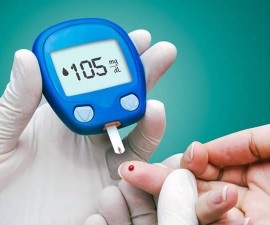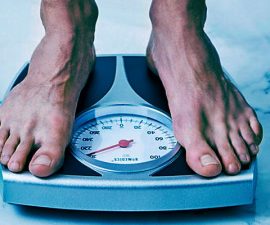Complications
If the issue isn’t treated, it may lead to:
- Dehydration because you lose too much water
- Electrolyte imbalance. When you lose water excessively, the electrolyte levels can increase, and it may cause muscle pain, irritability, fatigue, and headache
- Nocturia. It is waking up at night to urinate. As a result, you have less sleep and you don’t have quality sleeping time
Diabetes Insipidus Treatments
Since you will be losing quite a lot of liquid because of your condition, the primary solution is to have a lot of water. It will prevent dehydration and keep you stay hydrated. It is also possible that your doctor refer you to a nephrologist or an endocrinologist. A Nephrologist is a physician specializing in treating kidney issues. An Endocrinologist is a physician specializing in treating hormone-producing glands disorders.
Of course, for further developments, the diabetes insipidus treatment depends on the diabetes insipidus type.
Central
This treatment includes Desmopressin being used to treat the problem. Desmopressin is a man-made or synthetic hormone that is made available in a form of a pill, a nasal spray, or an injection. The idea is to replace the natural Vasopressin in the body with the medication. According to WebMD Medical References, this medication can manage the symptoms but it can’t cure the issue.
Nephrogenic
It is possible that this disorder goes away after the exact cause is being treated. For instance, if you can balance the potassium or calcium level in the body or you may switch medication, the issue can go away on its own.
Basically, the medication for this type includes diuretics that can be combined with ibuprofen or aspirin. It is also possible to administer the diuretics alone. Doctors generally prescribe diuretics so patients can remove the fluid from their body. There is a class of diurethics (named Thiazides) that will help the kidneys’ urine concentration as well as reducing the urine production. Ibuprofen or aspirin can also help to reduce the volume of urine.
Dispogenic
Unfortunately, researchers haven’t found a completely effective way to treat this condition. Patients can try sucking on sour candies or ice chips so their mouths will remain moist. Such a way can also increase the flow of saliva – reducing the want to drink. If you constantly have to wake up at night to pee because of this condition, you can consider taking Desmopressin (just a small dose) during bedtime. It should help reducing the urge to pee. But this should be done with your healthcare providers’ monitoring and observation. They will monitor your blood sodium level so you won’t suffer from hyponatremia or low sodium level within the blood.
Gestational
In most cases, pregnant moms don’t need any treatment at all. However, it is possible that doctors may prescribe you Desmopressin – but only if the condition is too disturbing or annoying. In most cases, pregnant moms don’t need more treatments after they deliver the baby.
Important Points to Understand and Remember
- Those with diabetes insipidus can run a normal life and prevent any serious issue if they follow the recommendation and guide from their healthcare providers. As long as the symptoms are well-managed and they are kept under control, you should be fine.
- Scientific researchers haven’t found out that diet, eating, and nutrition has something to do with the cause or prevention of diabetes insipidus
- You need to understand each type of the disorder so you know the exact cause and also the possible treatments
Diagnosing Diabetes Insipidus
Doctors will have to ask you questions concerning your health history, your family’s health history, and physical exams.
- Urinalysis. Your doctor will send your urine’s sample to the lab to check whether it is concentrated or dilute. During the exam, they will also check for glucose, to determine whether you are suffering from diabetes mellitus or diabetes insipidus. You also may have to collect your urine within 24 hours of time frame – to see how much the frequency of urination is
- Blood test. This would measure the glucose and electrolytes level within your blood. Through this test, your doctor can decide whether you have diabetes insipidus or mellitus. This test will also help your doctor find out which type of diabetes you are suffering from.
- MRI (Magnetic Resonance Imaging). It will take detailed images of your soft tissues and internal organs. Doctors use this to see whether there is an issue with your pituitary gland or hypothalamus
- Genetic screening. If doctors find out that any of your family member has excessive urination, they may suggest this type of test for further confirmation
There is also the so-called fluid deprivation test that will measure the changes within your blood sodium, body weight, and also urine concentration after you stop drinking anything within a short period of time. There are 2 types of tests for this one:
- Short-form test. You are asked to stop drinking in a short period of time. You have to collect a sample and give it to your doctor. The doctor will send it to a lab.
- Formal test. This is done in the hospital so your doctor can be sure you won’t be dehydrated. It involves weighing your body. You will have to provide a sample every hour (or two) until:
- You lose around 5% (or even more) from the starting body weight
- Your heartbeat is faster, especially when you stand
- Your (blood) pressure drops quite significantly too low
- The urine concentration increases just a little within 2 (or 3) measurements
Follow your doctor’s direction, take the medicine prescribed, and make sure to have enough drink are some of your best efforts to deal with diabetes insipidus.




